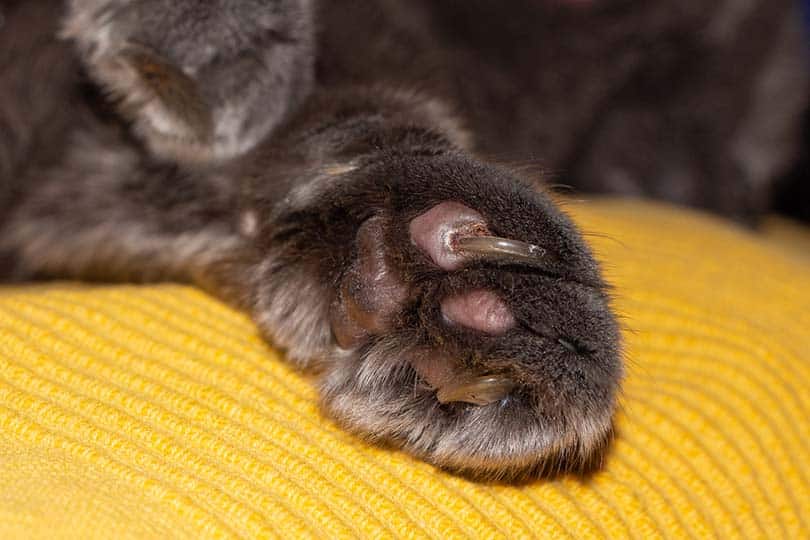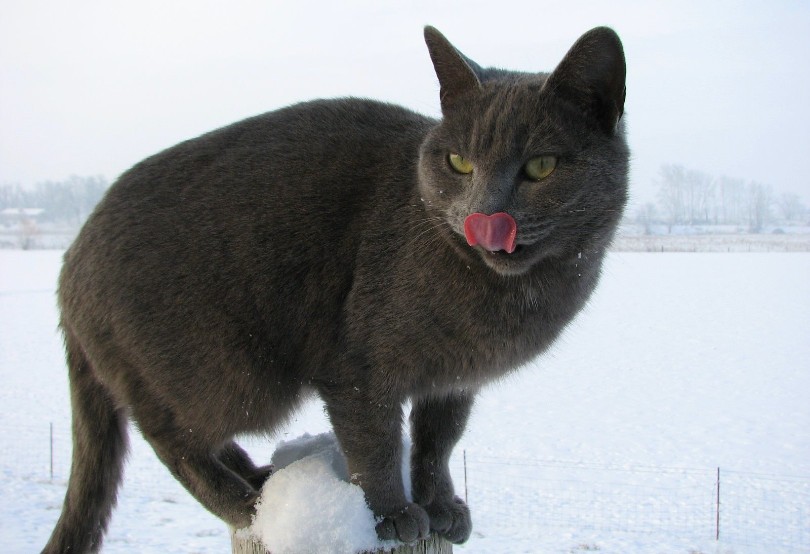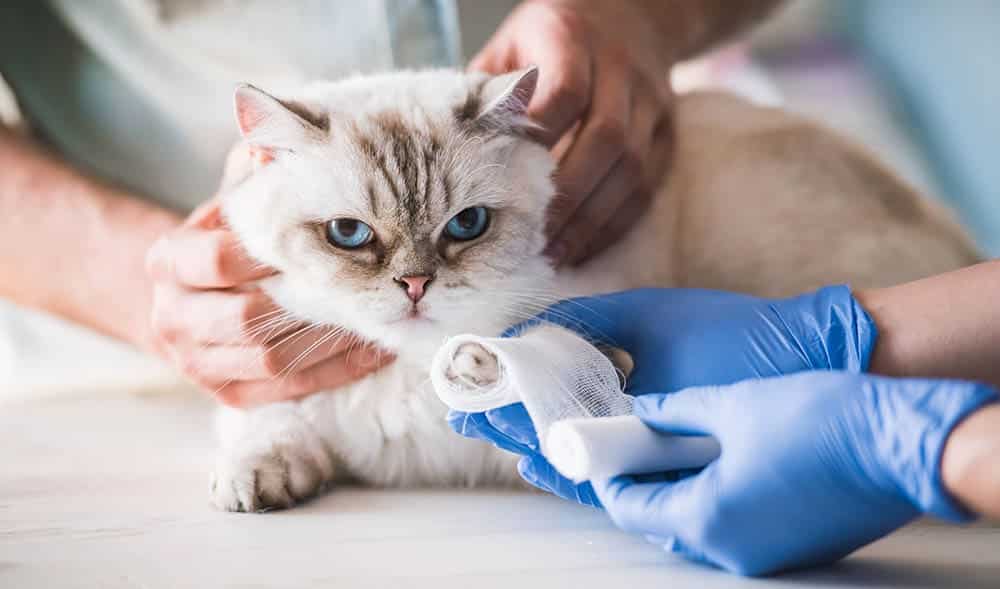Cats communicate differently than humans, so it’s helpful to observe and get to know your cat’s behavior. Understanding how your cat acts can help you catch any inconsistencies that point to underlying health concerns.
If you notice that your cat’s been acting strange and is suddenly limping, there are several factors that can be causing this behavior. Here are seven possible reasons for sudden limping in cats.

The 7 Possible Reasons Your Cat Is Limping All of a Sudden
1. Something Stuck in Paw

Many cats enjoy climbing and investigating spaces all over the house and garden. This mix of athleticism and curiosity can sometimes get them into trouble as they step on debris, which can get stuck in their paw pads or between their paws. Cats with something stuck in their paws may also start licking their paw excessively.
So, if your cat’s limping, try thoroughly checking your cat’s paws to see if you can find debris, such as splinters and cat litter, either poking into your cat’s paws or stuck between the paw pads.
2. Injured Claw
Sometimes, a cat’s claw can get stuck on something and get injured or cut too short. This can cause significant discomfort and bleeding. Similar to when cats have something irritating stuck in their paws, they may try to lick their paws to alleviate the pain.
So, if your cat’s limping and licking its paws, make sure to also check for any broken or damaged claws. If there’s any bleeding, make sure to control the bleeding. You can do this by wrapping the affected area with gauze and applying pressure. Cauterizing powder can also help stop the bleeding.
3. Ingrown Nail

If a cat’s nail is too long and curved, it can become an ingrown nail. An ingrown nail will start to dig into your cat’s paw pad and cause irritation and inflammation. In more severe cases, the nail will puncture the paw. This can become extremely painful and cause limping.
If you notice an ingrown nail in the early stages where the paw pad isn’t punctured, you can trim and file down the nail to prevent further pain.
4. Tender or Swollen Paw
Sometimes, a cat can have a tender, swollen, and inflamed paw. While ingrown nails can cause tenderness, other factors, such as allergies, can cause inflammation.
If you notice that your cat’s paws are red, swollen, or itchy, consult with your veterinarian to determine the cause. Allergic reactions can escalate, so it’s best to get your pet to the veterinarian or an emergency pet clinic to receive treatment right away.
Pillow pad or pododermatitis causes swollen paw pads with a spongy texture and often a blue coloration.
5. Sprained or Fractured Leg

Cats are pretty agile and coordinated, but they can still get into accidents while they’re leaping and climbing. If you notice your cat limping and you can’t find anything unusual on its paws, there’s a good chance that your cat has injured one of its limbs.
You can try looking for any swollen areas on your cat’s legs or hip area. If you gently feel around your cat’s limbs and notice that your cat reacts in pain, there’s a good chance that it injured one of its legs.
Fractures are usually more obvious with pain, swelling, bruising, and inability to use the leg.
6. Arthritis
Cats can develop arthritis as they age, and it starts to become painful for them to walk. If you suspect that your cat has arthritis, try to see if your cat exhibits any of these other symptoms:
- Walking stiffly
- Reluctance to jump
- Difficulty going up and down stairs
- Sore, stiff, or swollen joints
- Not wanting to be touched
- Sudden aggressiveness
While arthritis can be an age-related illness, it can also occur in overweight and obese cats. So, if you have an overweight cat and it’s limping, there could be a chance that the limping is caused by joints that are overworked and stressed from carrying extra weight.
7. Animal Bite

Animal bites and insect bites on the legs can also cause limping. Bitten areas can also result in inflammation, itching, and bleeding. If you suspect an animal bite, try to look for swollen areas or bumps on the skin. Insect bites can also cause skin to redden.
When to Visit the Veterinarian
If you notice your cat limping all of sudden, you’ll want to consult with your vet. Some issues can be resolved at home, but most will need further examination and testing by your vet. For example, minor ingrown nails and damaged claws can be treatable at home. However, more intense cases will require professional treatment and antibiotics to prevent infections.
If you suspect allergies or an animal bite, make sure to let your veterinarian know right away. Animal bites and insect bites can spread diseases and also cause severe reactions.
Some limping requires additional testing, such as X-rays, to find a diagnosis. No matter how much you suspect arthritis, you won’t know for sure until a veterinarian completes the necessary procedures to find a diagnosis. Cats with sprains or fractures need to see a vet to ensure that their injury heals correctly and to help them with the pain.
Conclusion
There are several different reasons why cats may suddenly start to limp. Your best bet is to contact your veterinarian to determine the right treatment plan for your cat. While your cat may not enjoy a surprise visit to the vet’s office, it’s better to be safe than sorry. A veterinarian can help you address and tend to your cat’s limping in the most effective way possible.
See Also:
- My Cat Has a Limp Tail, What’s Wrong? 5 Vet-Reviewed Possible Issues
- My Cat Has a Front Paw Limp, What’s Wrong? Vet Approved Advice
Featured Image Credit: Andriy Blokhin, Shutterstock












